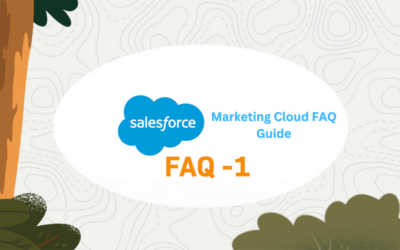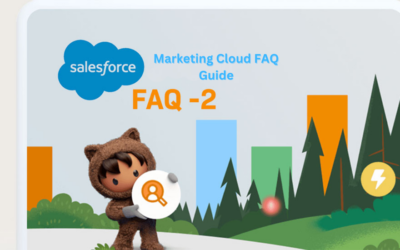In the ever-evolving landscape of business management and customer relationship management (CRM) solutions, the choice between HubSpot and Zoho has become a pivotal decision for businesses seeking to optimize their operations. These two platforms stand as titans in the realm of software solutions, each offering a unique approach to addressing the multifaceted needs of modern enterprises. As businesses navigate the intricacies of selecting the right tool, this comprehensive exploration aims to shed light on the strengths, considerations, and distinctive features of HubSpot and Zoho. From the intuitive inbound marketing prowess of HubSpot to the modular versatility of Zoho, the journey to finding the perfect fit involves a nuanced understanding of the operational nuances and growth trajectories of individual businesses. In this guide, we embark on a detailed comparison, dissecting user interfaces, integration capabilities, pricing structures, and more, to empower businesses with the insights needed to make an informed decision tailored to their specific objectives.
As we delve into the depths of HubSpot and Zoho, it’s not merely a comparison of features but a strategic analysis of how each platform aligns with the diverse goals and operational intricacies that businesses face. The choice between these two industry-leading solutions extends beyond a mere software selection; it’s a strategic decision that could impact customer engagement, operational efficiency, and overall business success. Join us on this journey as we navigate the intricate terrain of HubSpot and Zoho, providing you with the information necessary to make a confident decision that aligns seamlessly with the unique DNA of your business. If you need assistance with Salesforce CRM setup and optimization, companies like CRM Force can provide valuable expertise and support.
Understanding HubSpot: A Comprehensive Insight into the All-in-One Inbound Marketing Powerhouse
In the ever-evolving realm of business management and customer relationship management (CRM) solutions, HubSpot has emerged as a trailblazer with its all-encompassing inbound marketing platform. Let’s delve into the intricate features and functionalities that define HubSpot, making it a popular choice for businesses of all sizes.
1- Marketing Hub: Elevating Inbound Marketing Strategies
At the heart of HubSpot lies its Marketing Hub, a comprehensive suite of tools meticulously crafted to facilitate inbound marketing strategies. Here’s a detailed look at some key features:
Email Marketing Excellence: HubSpot’s email marketing tools go beyond the basics. They empower businesses to create visually appealing and highly personalized email campaigns. The platform offers intuitive drag-and-drop editors, making it accessible for both seasoned marketers and beginners. Robust analytics provide insights into open rates, click-through rates, and other crucial metrics.
SEO Optimization Capabilities: HubSpot recognizes the significance of search engine optimization (SEO) in today’s digital landscape. Its SEO tools assist businesses in optimizing their content for search engines, improving their online visibility. From keyword research to on-page SEO suggestions, HubSpot’s Marketing Hub is equipped to enhance a brand’s discoverability.
Analytics for Data-Driven Decisions: Understanding the performance of marketing efforts is vital. HubSpot’s analytics tools offer real-time data and detailed reports, empowering marketers to make informed decisions. Metrics like website traffic, lead generation, and conversion rates provide a holistic view of the effectiveness of marketing campaigns.
2- Sales Hub: Streamlining Lead Management and Automation
Complementing the Marketing Hub is HubSpot’s Sales Hub, a robust set of tools designed to streamline lead management, sales automation, and customer relationship nurturing.
Lead Management Mastery: Sales Hub facilitates the seamless transition from marketing to sales by offering comprehensive lead management tools. Users can track leads through the entire sales pipeline, ensuring that no potential opportunity falls through the cracks. The platform provides visibility into lead interactions, enabling sales teams to make informed decisions.
Sales Automation Simplified: Automation is a cornerstone of efficiency in modern sales processes. HubSpot’s Sales Hub incorporates automation features that eliminate repetitive tasks, allowing sales teams to focus on building relationships and closing deals. Automated email sequences, task reminders, and lead scoring contribute to a more streamlined and efficient sales workflow.
3- Service Hub: Prioritizing Customer Support and Engagement
Completing the triumvirate of HubSpot’s offerings is the Service Hub, a dedicated set of tools designed to enhance customer support and engagement.
Efficient Ticketing System: Central to the Service Hub is its robust ticketing system. This feature allows businesses to organize and prioritize customer inquiries systematically. Service teams can manage and resolve customer issues promptly, contributing to overall customer satisfaction.
Knowledge Base Creation: Empowering customers to find answers independently is a key aspect of effective customer service. HubSpot’s Service Hub provides tools for creating a knowledge base, ensuring that customers can access relevant information at their convenience. This self-service approach enhances the overall customer experience.
In essence, HubSpot’s unified approach, seamlessly integrating Marketing Hub, Sales Hub, and Service Hub, sets it apart as a holistic solution for businesses seeking an all-in-one platform for their inbound marketing, sales, and customer service needs. The intuitive user interface, coupled with robust features, positions HubSpot as a versatile tool capable of supporting businesses at every stage of their customer journey. As we navigate the nuanced comparison between HubSpot and its competitors, understanding the depth of HubSpot’s capabilities provides a solid foundation for making informed decisions tailored to your business objectives.
Exploring Zoho: A Modular Approach to Business Management Excellence
In the diverse landscape of business management software, Zoho stands out for its modular approach, offering a suite of applications that cater to various aspects of business operations. From CRM to project management and analytics, Zoho provides businesses with the flexibility to tailor their toolkit to meet specific needs. Let’s delve into the key components that constitute the robust ecosystem of Zoho.
1- Zoho CRM: The Nucleus of Customer Relationship Management
At the core of Zoho’s offerings is its Customer Relationship Management (CRM) software, a feature-rich tool designed to empower businesses in managing and nurturing customer relationships.
Lead Management Excellence: Zoho CRM excels in lead management, offering tools to capture, track, and nurture leads throughout the sales pipeline. The platform’s intuitive interface allows users to manage contacts efficiently, ensuring a streamlined approach to customer acquisition.
Customization Prowess: One of Zoho CRM’s standout features is its high degree of customization. Businesses can adapt the CRM to their unique processes and workflows, tailoring it to specific industry requirements. From custom fields to personalized modules, Zoho CRM provides flexibility in managing customer data.
2- Zoho Projects: Collaboration and Efficiency in Project Management
Zoho Projects takes a comprehensive approach to project management, facilitating collaboration and efficiency across teams.
Collaboration at its Core: Zoho Projects emphasizes collaboration by providing tools that foster communication among team members. Features such as document sharing, discussion forums, and real-time updates ensure that all stakeholders are on the same page, regardless of their physical location.
Integration for Unified Operations: The seamless integration of Zoho Projects with other Zoho applications ensures a unified experience for businesses using multiple tools within the Zoho ecosystem. This integration enhances data consistency and facilitates a cohesive approach to project and business management.
3- Zoho Analytics: Deriving Insights for Informed Decision-Making
Zoho Analytics empowers businesses with advanced analytics and reporting capabilities, providing a comprehensive view of data to facilitate informed decision-making.
Data-Driven Insights: Zoho Analytics allows businesses to derive meaningful insights from their data. The platform supports a wide range of data sources, enabling users to create customized dashboards and reports tailored to their specific needs. From sales performance to marketing analytics, Zoho Analytics covers the spectrum of data analysis.
User-Friendly Interface: Recognizing that not all users may have a background in data science, Zoho Analytics boasts a user-friendly interface. This accessibility ensures that users with varying levels of technical expertise can navigate the platform, making data analysis and reporting more accessible to a broader audience.
In essence, Zoho’s modular approach to business management provides businesses with the flexibility to choose and integrate applications based on their specific requirements. Whether it’s customer relationship management, project collaboration, or data analytics, Zoho offers a suite of tools that can adapt to the unique needs of diverse industries.
Comparative Analysis: Zoho vs HubSpot
As we navigate the detailed exploration of Zoho, the modular nature of its offerings becomes evident. In the subsequent sections, we’ll conduct a comparative analysis of Zoho and HubSpot, shedding light on the strengths and considerations of each platform. This analysis aims to guide businesses in making informed decisions based on their specific goals and requirements.
Comparative Analysis: HubSpot vs Zoho – Navigating the Business Software Landscape In the dynamic world of business software, choosing the right platform can be a pivotal decision for the success of your operations. In this comparative analysis, we’ll delve into the key aspects of both HubSpot and Zoho, shedding light on their strengths, considerations, and unique features to help you make an informed decision aligned with your business goals.
1- User Interface and Experience:
HubSpot: HubSpot boasts a sleek and intuitive interface, prioritizing user-friendliness. The design is clean, and navigation is straightforward, ensuring that users can quickly adapt to the platform. The emphasis on a positive user experience extends across all hubs – Marketing, Sales, and Service – providing a consistent and seamless interface.
Zoho: Zoho, with its modular approach, offers a more customizable interface. While this allows users to focus on specific applications, it may come with a steeper learning curve, particularly for those new to the platform. However, the customization options can be an advantage for businesses seeking a tailored user experience.
2- Integration Capabilities:
HubSpot: HubSpot’s App Marketplace is extensive, offering a wide range of integrations with third-party applications. This versatility allows businesses to extend the functionality of the platform, integrating it seamlessly with tools they may already be using.
Zoho: Zoho’s Marketplace similarly supports integration with various third-party applications. The modular nature of Zoho’s ecosystem ensures that integrations are cohesive and contribute to a unified experience across different business functions.
3- Pricing Structures:
HubSpot: HubSpot operates on a tiered pricing model, offering different packages with varying levels of features. This model allows businesses to choose a plan that aligns with their specific needs and budget. HubSpot’s pricing is transparent, making it easier for businesses to understand what they are paying for.
Zoho: Zoho adopts a modular pricing approach, allowing businesses to select and pay for the specific applications they require. While this offers cost flexibility, it requires careful consideration of individual application costs. The modular pricing model can be advantageous for businesses looking to tailor their toolkit to specific needs.
4- Automation and Customization:
HubSpot: HubSpot is renowned for its robust workflow automation and customization capabilities. Businesses can create highly tailored workflows, automating repetitive tasks and ensuring a personalized approach to marketing, sales, and customer service.
Zoho: Zoho, with its high degree of customization, allows users to create bespoke workflows and applications. The modular nature of Zoho applications ensures that businesses can customize their toolkit to align with their unique processes and requirements.
Making the Right Choice for Your Business:
The decision between HubSpot and Zoho ultimately hinges on the specific needs and preferences of your business. If you prioritize an all-encompassing solution with a strong emphasis on inbound marketing, HubSpot may be the ideal choice. HubSpot’s intuitive interface, extensive integration options, and robust automation capabilities make it a powerhouse for businesses focused on customer engagement.
On the other hand, if modular flexibility, customization, and a suite of applications catering to various business functions are your priorities, Zoho might be the better fit. Zoho’s modular pricing, customizable interface, and diverse applications empower businesses to build a tailored toolkit that aligns precisely with their operational requirements.
Zoho Alternative: Exploring Additional Options: While Zoho presents a compelling suite of applications, it’s essential to consider alternative options based on your business’s unique needs. These alternatives bring their own strengths and features to the table, providing additional choices for businesses seeking a CRM and business management solution.
Making the Right Choice for Your Business: A Strategic Decision Between HubSpot and Zoho As you stand at the crossroads of selecting a business management and CRM platform, the decision between HubSpot and Zoho is pivotal. Each platform offers a unique set of features, advantages, and considerations. Let’s delve into the key factors to consider when making this critical decision, ensuring that your choice aligns seamlessly with the distinctive needs and aspirations of your business.
1- Business Objectives and Operational Focus:
HubSpot: Ideal for businesses with a strong emphasis on inbound marketing strategies. Well-suited for those aiming to integrate marketing, sales, and customer service seamlessly. Best for organizations prioritizing customer engagement and personalized interactions.
Zoho: Suited for businesses seeking a modular approach to software solutions. Ideal for those with diverse operational needs, such as CRM, project management, and analytics. Best for organizations looking for flexibility in tailoring their software toolkit to specific requirements.
2- User Interface Preferences:
HubSpot: Offers a sleek and intuitive interface, designed for user-friendliness. Emphasizes a clean design and straightforward navigation for a positive user experience.
Zoho: Provides a more customizable interface due to its modular nature. Allows businesses to focus on specific applications, offering a tailored user experience.
3- Integration Capabilities:
HubSpot: Extensive App Marketplace with a wide range of integrations. Versatile integration options that allow businesses to extend the functionality of the platform.
Zoho: Marketplace supporting integration with various third-party applications. Modular nature ensures cohesive integrations contributing to a unified user experience.
4- Pricing Structures:
HubSpot: Operates on a tiered pricing model with different packages offering varying levels of features. Transparent pricing model for easier understanding of costs.
Zoho: Adopts a modular pricing approach, allowing businesses to select and pay for specific applications. Offers cost flexibility but requires careful consideration of individual application costs.
5- Automation and Customization:
HubSpot: Renowned for robust workflow automation and customization capabilities. Ideal for businesses seeking a highly tailored approach to marketing, sales, and customer service processes.
Zoho: The high degree of customization, allowing users to create bespoke workflows and applications. Modular applications enable businesses to customize their toolkit to align precisely with their unique processes.
6- Scalability and Future Growth:
HubSpot: Known for scalability, suitable for businesses of all sizes. Ideal for those anticipating future growth and expansion.
Zoho: Offers scalability with a modular approach, allowing businesses to add applications as needed. Suited for both small businesses and enterprises with diverse needs.
7- Support and Training:
HubSpot: Provides comprehensive support and training resources. Offers a vast knowledge base, webinars, and a dedicated support team.
Zoho: Offers support and training resources for users. Users can access documentation, forums, and customer support for assistance.
Conclusion
In the culmination of our in-depth exploration of HubSpot and Zoho, the path to choosing the right business management and CRM platform reveals itself as a strategic endeavor. Both platforms offer a wealth of features, from HubSpot’s seamless integration of inbound marketing, sales, and service hubs to Zoho’s modular ecosystem catering to diverse business functions. As businesses weigh the factors of user interface preferences, integration capabilities, pricing structures, and customization options, the decision becomes more than a selection of software; it becomes a roadmap for the future of operational excellence.
In the dynamic landscape of business software, it’s crucial to acknowledge that alternatives exist. As we conclude our analysis, it’s prudent to consider the broader spectrum of options available, and this includes exploring a “Zoho Alternative.” While Zoho presents a robust suite of applications, alternatives bring their unique strengths to the forefront. These alternatives can serve as compelling options, providing businesses with additional choices as they navigate the terrain of CRM and business management solutions. Ultimately, the journey towards selecting the right platform is a nuanced one, and the inclusion of alternatives ensures that businesses have the breadth of options needed to make a decision that resonates with their specific needs and aspirations. To learn more about how CRM Force can assist you in recruiting top CRM talent and optimizing your CRM strategies for successful drip campaigns, contact us today. Together, let’s maximize your customer engagement Contact Us today.





